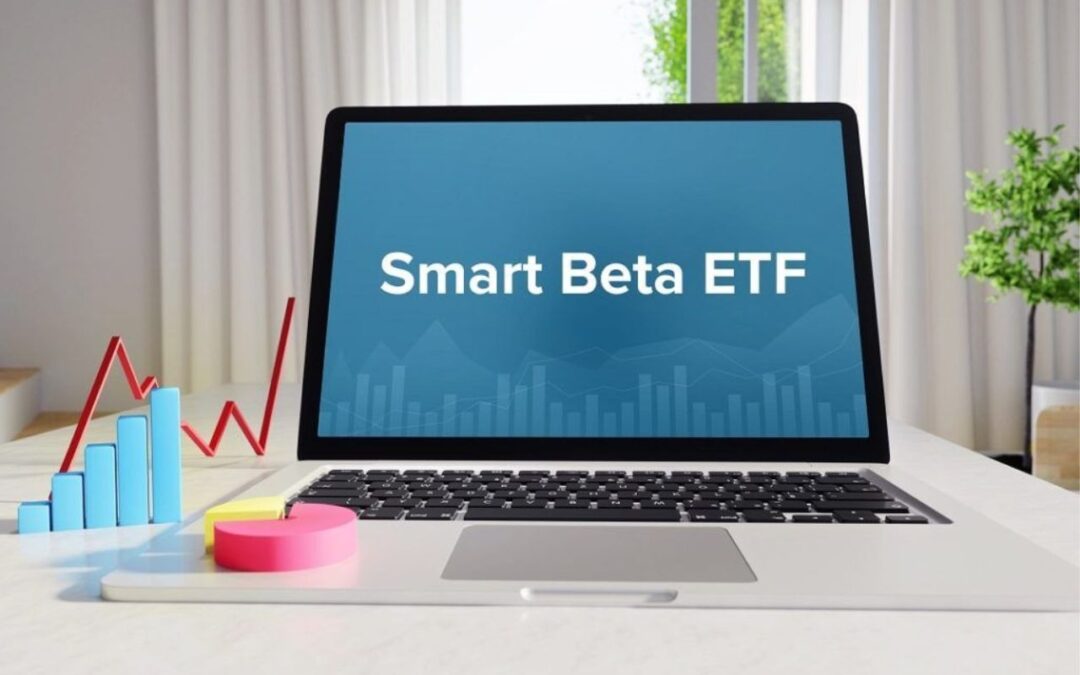Synopsis– Smart Beta ETFs are a new way to invest, combining the cost-effectiveness of passive funds with the benefits of performance-driven strategies of active investing. While traditional ETFs focus on offering market-cap based holdings, Smart Beta ETFs are based on factor-based strategies (value, momentum, low volatility, quality, and dividend yield).
What are Smart Beta ETFs?
Traditional ETFs generally track indices like the Nifty 50 or Sensex in a market-cap weighted fashion, larger companies as part of the index get higher weight, without consideration of fundamentals or valuations. Smart Beta ETFs use rules based strategies that are not limited to market-cap. They assign weightage based on factors like value, momentum, quality, lower volatility or dividend yield. Smart Beta ETFs combine:
- The low-cost and transparent structure of passive funds.
- The factor-driven performance advantage of active funds.
Why Smart Beta ETFs Matter in India
Passive investment in India is expanding rapidly and Smart Beta ETFs are slowly catching up. For the investor, Smart Beta ETFs offer nice middle ground. They don’t carry the fees or subjectivity of active management, but are not as simplistic as plain index ETFs. Smart Beta ETFs:
- Limit risk during turbulent periods (low volatility ETFs).
- Improve returns by focusing on specific styles (value, momentum, dividends).
- Provide exposure beyond standard indices.
Types of Smart Beta Strategies
- Value – Invests in undervalued companies with good fundamentals.
- Momentum – Invests in stocks with consistent upward price movement.
- Low Volatility – Invests in firms with returns with less volatility.
- Quality – Invests in firms with strong balance sheets and profitability.
- Dividend Yield – Invests in firms that have consistent dividend payouts.
Top ETF of Each Strategy in India
| Factor | Best ETF | Why It Matches This Factor |
| Value | Motilal Oswal BSE Enhanced Value ETF | Tracks the S&P BSE Enhanced Value Index, which selects undervalued stocks based on valuation multiples. |
| Momentum | HDFC Nifty200 Momentum 30 ETF | Replicates the Nifty200 Momentum 30 Index, focusing on 30 stocks with strongest price momentum from Nifty 200. |
| Low Volatility | ICICI Prudential Nifty Alpha Low Vol 30 ETF | Tracks the Nifty Alpha Low Volatility 30 Index, blending high alpha with low volatility for risk-adjusted returns. |
| Dividend Yield | Nippon India ETF Dividend Opportunities 50 | Follows the Nifty Dividend Opportunities 50 Index, targeting companies with high and sustainable dividend yields. |
| Quality | DSP Nifty Midcap 150 Quality 50 ETF | Tracks the Nifty Midcap 150 Quality 50 Index, screening midcap stocks based on ROE, debt-to-equity, and earnings. |
1. Value – Motilal Oswal BSE Enhanced Value ETF
- 3Y SIP XIRR Returns: 24.76%
- Market Price (11-09-2025): ₹103.06
- 52-Week Low / High: ₹85.91 / ₹114.10
- AUM: ₹115 Crores (as on 31-07-2025)
- Expense Ratio: 0.31%
- Listing Date: 14-Sep-2022
- Listing Price: ₹42.21
2. Low Volatility – ICICI Pru Nifty Alpha Low Volatility 30 ETF
- 3Y SIP XIRR Returns: 12.79%
- Market Price (11-09-2025): ₹27.54
- 52-Week Low / High: ₹24.00 / ₹32.67
- AUM: ₹1,774 Crores (as on 31-07-2025)
- Expense Ratio: 0.41%
- Listing Date: 18-Aug-2020
- Listing Price: ₹11.93
Also read: Can SIP in Nifty 50 ETF Generate Strong Long-Term Returns?
3. Momentum – HDFC Nifty200 Momentum 30 ETF
- 3Y SIP XIRR Returns: 12.12%
- Market Price (11-09-2025): ₹30.75
- 52-Week Low / High: ₹25.50 / ₹39.50
- AUM: ₹102 Crores (as on 31-07-2025)
- Expense Ratio: 0.30%
- Listing Date: 17-Oct-2022
- Listing Price: ₹19.32
4. Dividend Yield – Nippon India ETF Dividend Opportunities
- Market Price (11-09-2025): ₹77.93
- 52-Week Low / High: ₹68.30 / ₹91.65
- AUM: ₹77 Crores (as on 31-07-2025)
- Expense Ratio: 0.37%
- Listing Date: 22-May-2014
- Listing Price: ₹21.00
5. Quality – DSP Nifty Midcap 150 Quality 50 ETF
- Market Price (11-09-2025): ₹251.42
- 52-Week Low / High: ₹191.97 / ₹269.48
- AUM: ₹101 Crores (as on 31-07-2025)
- Expense Ratio: 0.30%
- Listing Date: 27-Feb-2024
- Listing Price: ₹210.26
Who Should Consider Smart Beta ETFs?
- Investors who already have core exposure to ETFs or index funds and want discretionary allocation.
- Investors who want factor-driven returns without stock-picking.
- Investors who have a medium to long time horizon and know that factors such as value, momentum, or dividends may take time to materialize.
Final Thoughts
Smart Beta ETFs in India are still in the early stages, but they are an emerging interesting development in passive investing. By combining index investment discipline and active strategy performance drivers, they unlock a new opportunity for investors. For retail investors, Smart Beta ETFs could be considered a complement to a core portfolio, not an alternative. Though the plain vanilla Nifty/Sensex ETFs should make up a core portfolio, Smart Beta could be a very powerful satellite strategy for anyone looking for a “smarter” way to invest in equities.
Written by Prajwal Hegde


